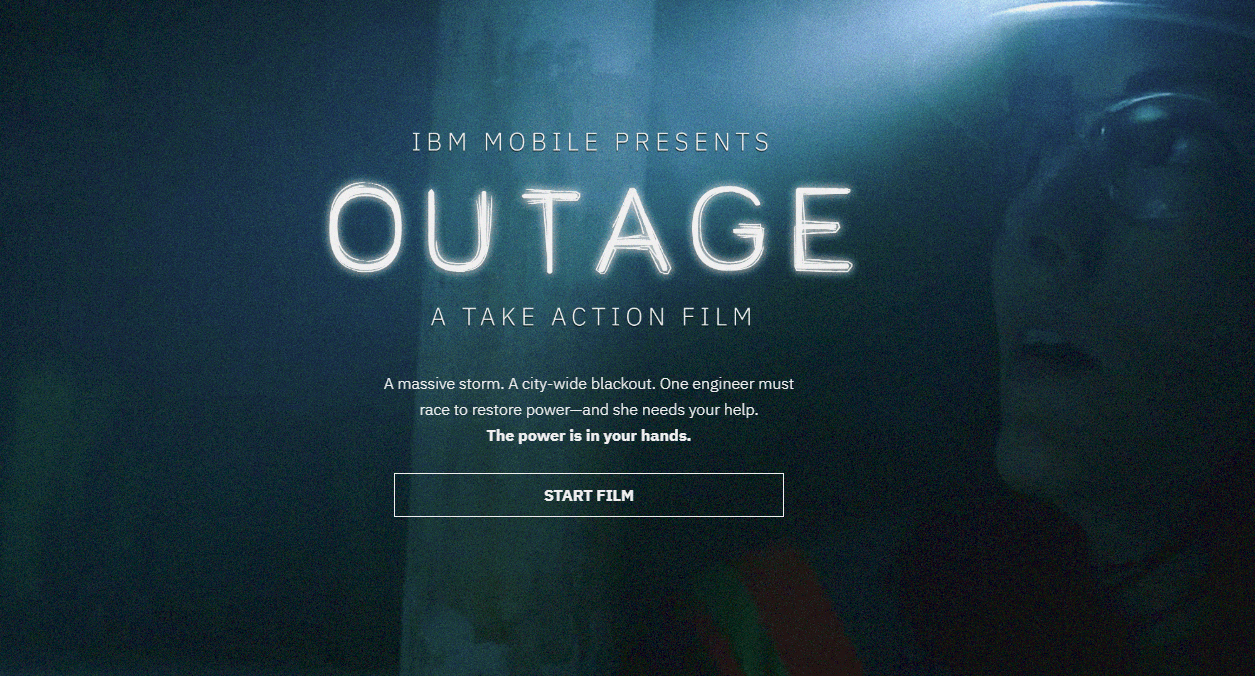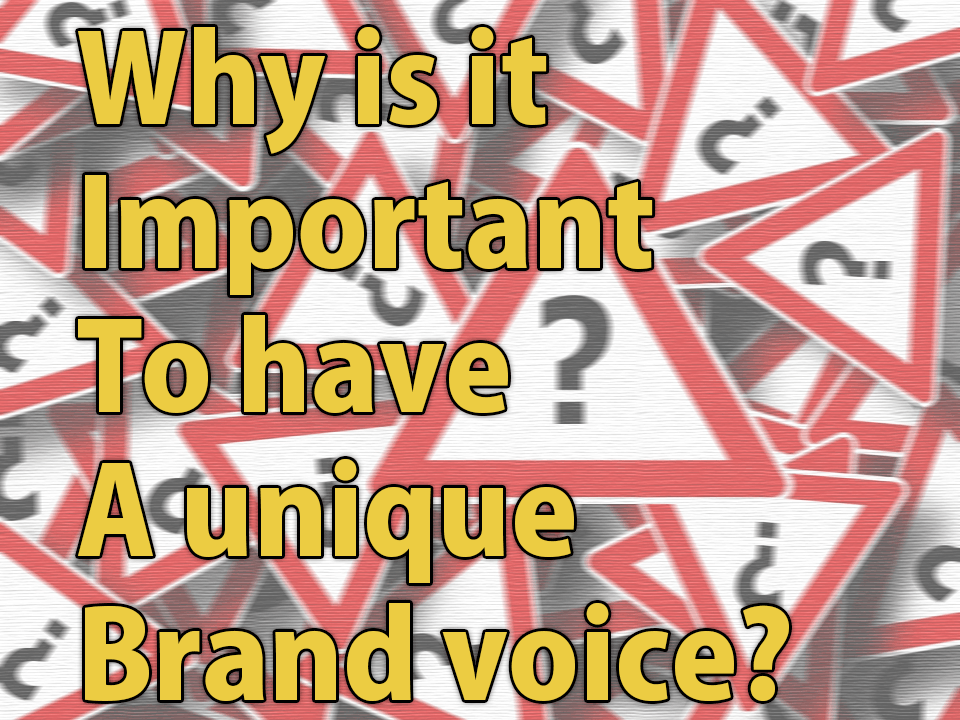Storytelling in the context of content writing and copywriting means putting across your point through a story.
You offer a great product or service. Instead of talking about your product or service, tell a story of someone who was going through a difficulty before doing business with you, and then, various circumstances led that person to your website, the person was convinced about what your product or service delivers and then bought it, and then how, his life was changed for the better.
Stories are relatable. They also give a live example instead of using oblique arguments. Everybody can relate to a story.
Does it mean you need to write fiction?
Not necessarily. Of course, you can create a hypothetical narrative to explain why people should use your product or service, but you can get plenty of real-world examples among your own customers and clients if you approach them and find out how they have benefited from your business.
The way they share their experience with you may not be as thrilling as a Mission Impossible plot, you can use your own creativity and writing skills to make the story interesting and immersive.
In fact, this Skyword blog post titled The Role of Fiction in Brand Storytelling says that there is no harm in creating fictional narratives to put across your point.
The above blog post links to a fictional IBM film in which an engineer restores the power supply using IBM technology. Quite gripping.
Recently I used storytelling for two of my clients and it was an interesting experience.
For one client, I wrote about this IT head who needed to revamp the HRM (Human Resource Management) system of his company. He couldn’t decide whether he should get an in-house HRM system installed or he should go for a cloud-based HRM system.
So, he goes through various options and weighs various pros and cons (the blog post was about whether he should go for an in-house or a cloud-based solution) and eventually makes a presentation in front of the board in favor of the cloud-based solution (provided by my client).
In another example, in which I needed to promote an Uber app clone script, I used a story of a man who had built his traditional cab service from scratch but now, since most of the people prefer to book cabs from their mobile phone apps, all his customers were leaving. In the story, his misconception that building his own custom cab booking app would be an expensive affair, holds him back and also creates lots of problems with for him. Then he comes across the Uber app clone script and his business completely transforms and in fact, he also starts a local food delivery service with the same mobile app script.
Storytelling when content writing for the B2B sector
Storytelling can be used for any segment.
A few months ago, I wrote about a Netflix series in Hindi. In the series they haven’t even directly promoted mutual funds. But the story is about a family where the main earner of the family, the father, provides consulting services about mutual funds and when he meets various people, he tells them why mutual funds are good.
Otherwise, the entire story is about the travails of a 14-year-old kid. In the series, the product, mutual funds, becomes a part of the story rather than being an add-on or piggybacking upon the narrative.
In the 7-episode series, only in three episodes, and that too, for just 2-3 minutes, the father interacts with people regarding the benefits of investing in mutual funds. Nothing else about mutual funds happens in the series.
72% B2B marketers say that they use content marketing in one form or another, which means, a ton of content is being created to promote various B2B products and services.
B2B content is usually considered drab. Hence, writing content for the B2B segment is always challenging especially when you don’t like writing drab content.
In the B2B segment, case studies are very prevalent. These are nothing but stories. You can create engaging case studies in story format and tell how you solve people’s problems.
How storytelling through content writing helps your B2B brand
Your B2B partners are also people, just like customers of consumer goods and services. They also have the same emotions and they also have the same need to connect.
It’s just that their information needs are different. The stakes are higher when they’re seeking B2B partners because the investments are greater. Therefore, they prefer to read elaborate case studies and white papers before settling with a B2B partner. So, yes, accurate representation of information is very important.
But why not present that information in the form of storytelling?
This Think with Google blog post says that
To stand out, B2B marketers need to create excitement — anticipation of both professional and personal rewards. How? By building emotional connections with their customers, which can drive important purchase outcomes like purchase intent and pricing power. B2B purchasers are almost 50% more likely to buy a product or service when they see personal value — such as opportunity for career advancement or confidence and pride in their choice — in their business purchase decision. They are 8x more likely to pay a premium for comparable products and services when personal value is present.
The main highlights of the observation are:
- 50% of B2B buyers are more likely to do business with you if they can feel an emotional connection with your brand.
- Nearly 50% B2B customers are more likely to buy your product or service if you provide personal value.
- 72% of buyers are ready to pay you even a higher price if they believe in your brand.
Hence, emotional, personal connections do matter even in the B2B sector and these emotional and personal connections can be made through storytelling.
Aside from establishing a personal connection and an emotional connection, storytelling through content writing also makes it easier to understand what you are communicating. As the saying goes, “show, don’t tell” – and it is also applicable in B2B storytelling.
Instead of telling how great your product or service is, tell about a person who used your product or service and benefited from it.
Main elements of storytelling
Depending on who is giving you the advice, a story normally has 5 elements, namely
- Characters
- Setting
- Plot
- Conflict
- Resolution
As I said, different people may have a different take on what these elements are, but basically, when you are telling a story about your brand as a B2B marketer, think of a few characters who are going through a situation.
To make it realistic, put them in a setting. Maybe they work in a hospital. Or a technology company. Or an advocacy group. Whichever setting suits your narrative.
Then there is a plot. They’re trying to achieve something.
The conflict is, they cannot achieve what they want to achieve. They either must change themselves, the things that they are using, or find something totally new (something that you are providing).
Resolution happens. They find the solution. The job is done. Everybody lives happily for the rest of the day.
We are all storytellers. And we are all suckers for stories. From the days of the cave paintings to Kindle books, we have been telling stories forever. The stories have the power to create and sustain civilizations. They can also help you promote your B2B brand.






